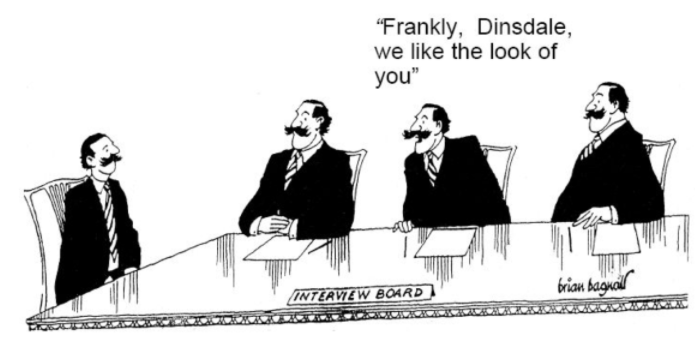
When I heard that the government had decided to pull the plug on unconscious bias training, I remember thinking at the time that it felt like a backwards step in terms of equality and diversity.
But the report by the Behavioural Insights Team stated: “There is currently no evidence that this training changes behaviour in the long term or improves workplace equality…there is emerging evidence of unintended negative consequences in some instances.”
So, what was going on there that meant not only was it deemed not very effective, but could actually be making things worse?
I recently attended a session which explored just that, focusing on research into the value of unconscious bias training, its flaws, and what approaches do work.
First, let’s rewind to what we mean by unconscious bias.
The line between conscious and unconscious can be blurry, but basically we are talking about our ingrained views and opinions which are automatic, and influenced by our own backgrounds and experiences.
We’re all hardwired to think better of those who are more similar to us, and less of those who are ‘different’. This can ultimately affect our everyday behaviour and decision-making – whether we’re aware of it or not.
The consequences of this can range from microaggressions, right up to direct discrimination, as well as big problems for organisations in terms of diversity and staff retention.
John Amaechi OBE, former professional basketball player turned psychologist, features in a great 3 minute video talking about the importance of unconscious bias in fighting everyday racism. He describes it as those ‘wince moments’ or uncomfortable interactions we’ve all had with someone who is ‘different’ to us in some way, where we’ve felt awkward or not known what to say or do.
This may be a little more conscious, but Amaechi suggests it’s important to embrace these moments of discomfort as opportunities to think about why you felt that way, acknowledge your biases, and learn from it.
So how can training aimed at tackling unconscious bias NOT be a good thing?
The evidence around this is mixed. One of the flaws highlighted comes down to the idea that when people receive information which implies our biases are an unchangeable part of human nature, there is potential for this to backfire or to legitimise bias by presenting it as the ‘norm’. I took this to mean it could result in a “oh well why fight it, nothing I can do” kind of attitude, which is clearly far from ideal.
The other major limitation mentioned is that a one-off intervention is just not enough to make a significant difference. I guess it shouldn’t be surprising that attending a training session for a couple of hours doesn’t have the power to eradicate a lifetime of deep-rooted bias – especially a virtual session where people may be mindlessly scrolling Twitter or answering emails at the same time.
So what can we do?
I think as with the ‘wince moments’, acknowledging our bias when we spot it and trying to be more consciously aware of this can only be a good thing.
While the impacts of training have been limited, it’s thought to be successful in terms of increasing knowledge. It’s just that this alone is not enough – we all need to do more.
And it’s not just bias around age, gender, ethnicity and other ‘protected characteristics’ that we need to be aware of. Things like how we dress, our accents, and general perceptions about our background or how well someone ‘fits’, all play a part in behaviours at work, and who gets recruited or promoted.
Obviously what we wear is a little less important right now (at least from the waist down), but these things all drive our conscious or unconscious thoughts which in turn, impact on practices within an organisation.
There are some useful tips out there to help tackle this, which start with recognising when we are more likely to act on something triggered by bias. For example when we’re in a hurry or under pressure, or uncertain about something. So it’s good practice to slow down before making snap decisions, question your first impressions of people, and don’t always rely on gut instinct.
Recruitment processes in particular are ripe for bias, and there are many ways to minimise this, including diverse interview panels, re-thinking job descriptions, and standardising interview questions as a minimum.
The session I attended also advocated for an evidence-led approach, looking at the data in your organisation and to the lived experience of employees in order to be proactive about challenging bias and encouraging diversity, as well as the importance of leadership in modelling behaviours.
Speaking up when you notice bias day-to-day is also so important in changing other people’s behaviour, which will lead to a more inclusive environment in general.
There’s tonnes of information online around these issues if you want to do your own research, and for fellow ECC folk there’s an e-learning module on unconscious bias which you can find on the learning portal.
Deconstructing our unconscious bias takes consistent work. We can't address it once and be done. We need to recognise these unwanted, deep-rooted beliefs and limit their influence on us.
[Quote: Sarah Fiarman, author of Unconscious Bias: When Good Intentions Are Not Enough]
This article has also been published on Apolitical.
6 comments
Comment by Alistair posted on
Really interesting blog post - thank you Poppy. Much food for thought here, and indeed action
Comment by Poppy Reece posted on
Thanks Alistair, much appreciated 🙂
Comment by Andree Race posted on
This is a very accessible and though provoking article. Great work Poppy 🙂
Comment by Poppy Reece posted on
Thanks Andree! 🙂
Comment by Tracy Smith posted on
A great article that makes you self reflect. thank you
Comment by Poppy Reece posted on
Thanks Tracy! 🙂